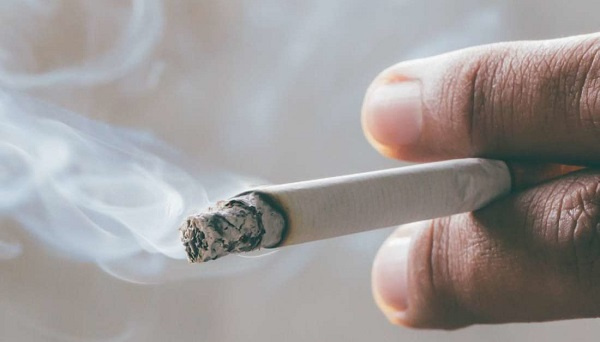 Staying away from these will help boost your system and increase your chances of fighting the virus
Staying away from these will help boost your system and increase your chances of fighting the virus
Did you know you had a higher risk of opening up yourself to infections and the coronavirus with a weak immune system?
A weak immune system opens you up to infections that your body cannot fight.
According to the National Institutes of Health (NIH), the immune system is a network of cells throughout your body (in the skin, blood, elsewhere) that work together to prevent or limit infection from potentially harmful pathogens like bacteria and viruses among others.
When the body lacks immunity, these cells are weakened and can barely support the body’s defence.
In the case of coronavirus, scientists and health professionals have associated most deaths and complications to persons with weak immune systems and with underlining health complications.
In fact, they have more often than not, advocated for everyone to develop lifestyles that will boost their immune systems because a good system will help fight off, together with other factors including treatment, the virus.
So why open up yourself up to death? Literally!
Aside age, weak immune systems are associated with certain lifestyles.
Yes, your everyday choice may adversely expose you and cause more harm than good.
A little fun never killed anyone, but just maybe, this is the time to avoid all of these, to keep strong and prepare your body against any infections and indeed COVID-19 pandemic, whilst adhering to all the safety protocols.
Here’s a compilation of things one MUST avoid if they want to have a strong immune system against the virus:
Alcohol

Aside damaging your liver, and digestive system, alcohol also harms your cardiovascular system.
Excessive drinking may impair the function of immune cells in the lungs and upper respiratory system leading to increased risk for pneumonia, tuberculosis and other respiratory diseases including the upper respiratory distress syndrome.
According to health experts at Recovery Ways, any disease can become more severe in your body with the constant and excessive intake of alcohol. This is because the immunity of the mucus is impaired in both the lungs and the digestive tract.
Smoking

It may be a habit but a single stick of cigarette or tobacco might cause you a lifetime of health complications; in this case, weaken your immune system and open you up for fatalities in the face of coronavirus infection.
A study, according to Medicinenet.com shows that aside lung cancer and heart diseases, cigarette smokers have a slower healing rate than anti-smokers.
Cardiologist and Heart specialist, Dr. Mehmet Oz also notes that chemicals in the cigarette smoke are an ongoing source of cells throughout the body, which means more exposure to lung-related diseases especially.
Stress and lack of sleep

Stress is a feeling of emotional or physical tension. It can come from any event or thought that makes you feel frustrated, angry, or nervous. It is, in fact, your body's reaction to a challenge or demand.
In these times when everyone tries to work towards a goal to achieve something in society; a world full of struggles, inequalities, anxieties and fear, stress is easy to catch up with you but it is avoidable and manageable once you notice it.
Research shows that the immune system's ability to fight off antigens is reduced when one is stressed, making us more susceptible to infections. The stress hormone corticosteroid can suppress the effectiveness of the immune system.
Studies also show that people who don't get quality sleep or enough sleep are more likely to get sick after being exposed to a virus, such as a common cold virus among others. Lack of sleep can also affect how fast you recover if you do get sick.
Lack of regular exercise

Research shows there is a direct relationship between exercise and the immune system. Studies have investigated how exercise affects the immune system. Regular moderate-intensity exercise is beneficial for immunity, but a view held by some is that more arduous exercise can suppress immune function, leading to an 'open-window' of heightened infection risk in the hours and days following exercise.
They say that, in the short term, exercise can help the immune system find and deal with pathogens, and in the long term, regular exercise slows down changes that happen to the immune system with ageing, therefore reducing the risk of infections.
It is for this reason everyone, especially in these times should avoid the ‘NO EXERCISE’ habit and adopt a healthy regular exercise routine to keep healthy.
Poor nutrition

Ever heard the phrase ‘what you eat is who you are?’ What we eat matters in deciding how good our immune system is. In fact, research proves that “excess consumption of red meat, sugar, saturated fat and low-fibre foods is a major factor which affects our immune system.
These food items lead to inflammation in the body, thereby causing several health issues. Consuming too much sugar curbs the immune system cells that attack bacteria, according to Harish.
It is more important in these times to avoid eating poorly. In our part of the country, it is true that inequalities exist and poverty doesn’t allow for many families to get a well-balanced diet.
But it is important, that as little as the food we eat, we include foods which are rich in nutrients like vitamins C and E, plus beta carotene and zinc.
It is also very important to include fruits and vegetables in our daily meals to boost the immune system and help fight any bacteria and in this case the virus which the world is fighting.
- Commonwealth countries must create 5,000 jobs everyday till 2030 - Foreign Affairs Minister
- Use COVID-19 fund to strengthen health care, immunization financing — HFFG
- Parliament records a new case of coronavirus
- Breach of coronavirus safety protocols: GMA calls for action
- Chadians line up for Sinopharm as coronavirus vaccination campaign begins
- Read all related articles












